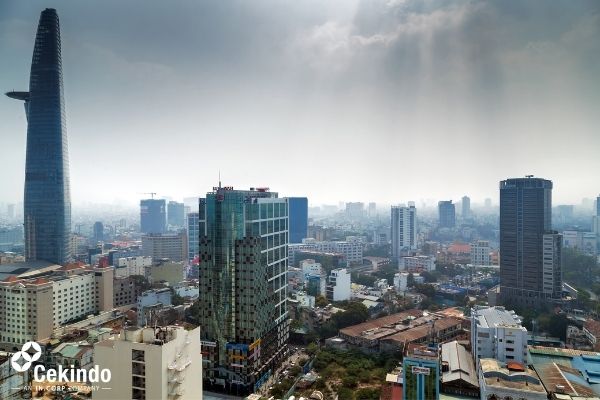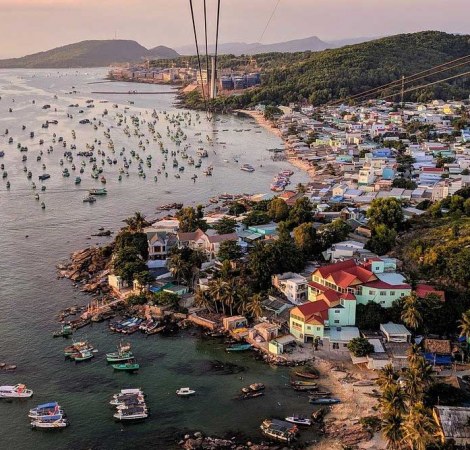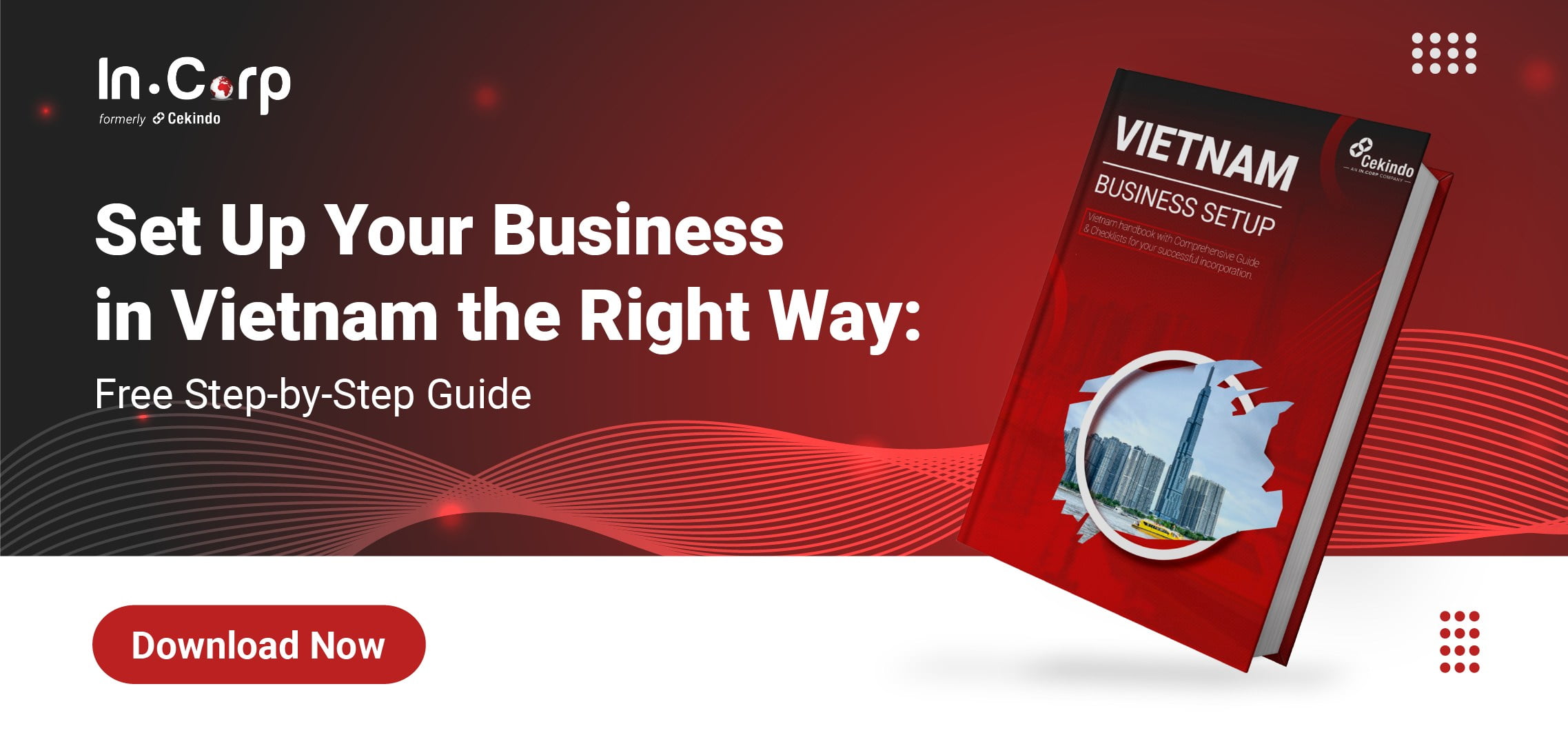As one of the fastest-growing economies in Southeast Asia, Vietnam now has a large community of international investors and expatriates living and working in the country. Multinational corporations such as Nike, Lego, and Samsung, for example, have relocated their operations from China to Vietnam over the past few years. The trend is likely a result of China’s rising manufacturing costs, the trade war with the US, and the zero-COVID policy. Additionally, Vietnam also boasts strong governance, political stability, encouraged and transparent business activities, as well as an impressive GDP forecast of 7.5% for 2022.
Investing in Vietnam? See Our Market-entry Services for Foreign Investors
Vietnam’s growth can also be supported by trade figures, indicating a stunning 435% increase in Vietnam’s overall exports to the US between 2010 and 2020. According to Cushman & Wakefield, the real estate market has also responded to rising manufacturing demand, with industrial rents in Ho Chi Minh City growing by 9.0% in 2019 and 10.6% in 2020. Due to increasing demand from overseas investors, apartment prices have grown by an astounding 90% between 2017 and 2020.
Seeing these numbers, the biggest questions on foreign investors’ mind is probably, “can foreigners buy property in Vietnam?” The rest of the article will answer that in detail, but to be blunt, the answer is yes.
A common misperception is that foreigners and foreign organizations cannot own property in Vietnam. However, that’s the exact opposite of the truth. Even without local residency/nationality, you are fully capable of obtaining real estate. However, there are certain things you should know before buying property in Vietnam, such as the property market, ownership restrictions, real estate foreign ownership certificates, and taxes.
Can foreign investors buy property in Vietnam?
According to the Vietnamese Law on Housing 2014, foreign investors or citizens with adequate finances can buy properties across the country as long as they meet Vietnam’s entry requirements.
There are a few key aspects of the Law on Housing dictating property ownership for international citizens, listed below:
- Even if you only have a tourist visa, you can still purchase property.
- There is no limit to the number of real estate units you can buy.
- However, within a single ward, you can’t own more than 250 residences.
- Similarly, within an apartment building, you can only own up to 30% of its units, and up to 10% of a housing development.
- Foreigners can own up to 30% of the units in condo buildings but no more than 10% of the properties in a landed property.
- You are entitled to a leasehold of 50 years on the land of your property; however, it is renewable.
- Foreigners who marry a Vietnamese can get freehold ownership.
Can foreigners buy land in Vietnam?
We’ve just mentioned the leasing of the land your property is built on. Foreigners are not permitted to buy or possess land in the nation, as they are in most other Southeast Asian countries. The land is a communal property of the Vietnamese people, according to the country’s constitution, and is controlled by the state.
Instead, the law enables foreign individuals and businesses to use the land on a lease of up to 50 years. In specific cases, however, it might be valid for 70 or even 99 years. With the possibility of unannounced and often unprecedented changes in regulations, it is critical that you remain vigilant. Lease periods, for example, depend greatly on the current political and social conditions, as well as your own eligibility.

Real estate ownership for expats in Vietnam
A property ownership certificate is an essential first step in acquiring real estate in Vietnam. This document, known colloquially as the Pink Book, expresses your entire ownership of real estate, which can include land and/or properties in Vietnam. The Pink Book is issued by the Ministry of Construction, and you can apply for it via an agent.
Furthermore, under Vietnamese housing legislation, foreigners are only permitted to own up to 30% of a project’s apartments. Regions designated for national defense and security are naturally not available for sale as well. To learn more about the regions designated for national defense and security, contact your local construction authorities.
Traditional Mortgages for foreigners in Vietnam
It’s generally well-known that getting a mortgage in Vietnam as a foreigner is not easy. However, if you want to secure a property loan quickly, you should contact a bank like HSBC, OCB, UOB, or Standard Chartered. If a foreigner has a Vietnamese spouse, they can secure a 15-year loan from OCB for up to 80% of the property value. However, in order to obtain a mortgage, they must also offer collateral. It’s always good advice to check the interest rates, amortization criteria, and repayment period carefully before making a decision to guarantee the best offer for your investment.
Flexible Alternative to Mortgages: Proptech Solutions
Homebase is a Singaporean proptech company that offers rent-to-own real estate financing to Southeast Asian buyers – the region’s only alternative to rigid mortgages. This service essentially provides more innovative, compelling, and empathetic solutions for homebuyers who don’t want to deal with the beauracratic hassles of buying property in Vietnam.
See the Buy with installment program from Homebase, specifically designed for foreigners:
Homebase essentially serves as a co-investor, buying the property with clients who contribute at least a 20% down payment. Then, clients either pay a fixed amount to Homebase each month or choose to buy out the entire company’s share. They can also opt-out of the deal and cash out their savings. Clients have full access to the home and can live in it or rent it out. Contract lengths range from one to ten years.
Suggested Areas to Invest in Property in Vietnam
With over 95 million people, Vietnam is Southeast Asia’s third most populous country, generally, its divided into three areas: north, central, and south:
In the north, you have Hanoi, the beautiful old capital city, in central Vietnam you have Da Nang, the most important economic hub of the central part of the country. And we have the financial engine of the entire country in the south, Ho Chi Minh City, where most large firms establish their headquarters for operations in the country.
Below is a short guide to each city:
Ho Chi Minh City
Formerly known as Saigon, HCMC is now the largest city in Vietnam. As well as being the economic engine of the country, contributing up to 23% of GDP, HCMC is one of the fastest-growing cities in the country, contributing to a real estate boom that should not go unnoticed.
According to the latest data reported by Tuoi Tre News,12,000 completed apartments have been put up for sale in Vietnam in 2022.
The latest prices (2022) are divided into two areas, as reported by Numbeo:
- Price per square meter in the city center: 4,639 USD
- Price per square meter outside of the city center: 1,958 USD
Hanoi
Hanoi is the cultural and political capital of Vietnam, and attracts a lot of immigration from neighboring provinces, contributing to rapid growth, similar to Ho Chi Minh City. The capital has a population of about 5 Million people, it’s divided into 12 urban areas, 1 district town, and 17 rural areas.
Hanoi is also the city with the highest human development index among Vietnamese cities. According to PwC, from 2008 to 2025, Hanoi will become one of the world’s fastest-growing cities.
In 2022, the average pr
The latest (2022) prices are divided into two areas, as reported by Numbeo:
- Price per square meter in the city center: 2,231USD
- Price per square meter outside of the city center: 1,271USD
Nha Trang
Located in Khanh Hoa province in the coastal area of central Vietnam, Nha Trang is one of the most important beach resort cities in the country. It’s white-sand beaches and luxury resorts attract large quantities of tourists, especially from Russia and Korea.
The economy of Nha Trang depends heavily on tourism with a strong demand for home purchases from wealthy residents hailing from Hanoi and Ho Chi Minh City. However, due to the economic slump the city witnessed as a result of the pandemic, the prices of property has been lower than pre-pandemic levels.
The latest (2022) prices are divided into two areas, as reported by Numbeo:
- Price per square meter in the city center: 1,622USD
- Price per square meter outside of the city center: 925USD
Da Nang
Da Nang is the fourth largest city in Vietnam, and the most important urban center in the center of the country.
In May 2017, a new international terminal was built at Da Nang Airport which is expected to receive 6 million passengers per year. The high-end beachfront hotels and resorts in Da Nang have become the preferred destination for foreign tourists to spend their holidays and leisure. Therefore, the resort property in Da Nang is especially popular among investors.
The latest (2022) prices are divided into two areas, as reported by Numbeo:
Price per square meter in the city center: 1,775USD
Price per square meter outside of the city center: 1,109USD
About Us
Cekindo is a leading provider of global market entry services in Southeast Asia. We are part of InCorp group, a regional leader in corporate solutions, that encompasses 8 countries in Asia, headquartered in Singapore. With over 500 legal experts serving over 12,000 Corporate Clients across the region, our expertise speaks for itself. We provide transparent legal consulting, setup and advice based on local requirements to make your business perfectly fit into the market with healthy growth.
Don’t take our word for it. Read some reviews from some of our clients.

